
Lugano: Switzerland's Mediterranean Gem
Nestled between the scenic mountains and the glistening Lake Lugano, this picturesque city blends Swiss precision with Italian flair. Lugano is an exceptional destination for those seeking a mix of culture, nature, and relaxation. The city's charming streets, lined with palm trees and elegant boutiques, invite leisurely strolls and shopping sprees. Art enthusiasts will find solace in Lugano's rich cultural scene, boasting numerous art galleries, museums, and festivals. The MASI (Museo d'Arte della Svizzera Italiana) is a must-visit, showcasing an impressive collection of Swiss and Italian art. Music lovers can enjoy the annual Lugano Festival, which features world-renowned musicians and orchestras. For nature lovers, Lugano offers a plethora of outdoor activities. The Monte Brè and Monte San Salvatore mountains provide breathtaking views and are perfect for hiking and picnicking. The lake itself is a hub for water sports, including paddleboarding, sailing, and swimming. Don't miss the tranquil Parco Ciani, a beautiful lakeside park ideal for a relaxing afternoon. Foodies will delight in Lugano's culinary scene, which offers a unique blend of Swiss and Italian cuisine. From cozy trattorias to high-end restaurants, the city caters to all tastes. Be sure to try local specialties such as risotto, polenta, and fresh lake fish. In summary, Lugano is a city that promises an unforgettable experience, whether you're an art lover, nature enthusiast, or foodie. Its unique blend of cultures, stunning landscapes, and vibrant atmosphere make it a top destination for travelers.
Local tips in Lugano
- Visit during spring or autumn for pleasant weather and fewer tourists.
- Explore the city by foot or rent a bike to fully appreciate its beauty.
- Take a boat tour on Lake Lugano for a unique perspective of the city.
- Try the local Merlot wine, a specialty of the Ticino region.
- Use the funiculars to easily reach Monte Brè and Monte San Salvatore.
Lugano: Switzerland's Mediterranean Gem
Nestled between the scenic mountains and the glistening Lake Lugano, this picturesque city blends Swiss precision with Italian flair. Lugano is an exceptional destination for those seeking a mix of culture, nature, and relaxation. The city's charming streets, lined with palm trees and elegant boutiques, invite leisurely strolls and shopping sprees. Art enthusiasts will find solace in Lugano's rich cultural scene, boasting numerous art galleries, museums, and festivals. The MASI (Museo d'Arte della Svizzera Italiana) is a must-visit, showcasing an impressive collection of Swiss and Italian art. Music lovers can enjoy the annual Lugano Festival, which features world-renowned musicians and orchestras. For nature lovers, Lugano offers a plethora of outdoor activities. The Monte Brè and Monte San Salvatore mountains provide breathtaking views and are perfect for hiking and picnicking. The lake itself is a hub for water sports, including paddleboarding, sailing, and swimming. Don't miss the tranquil Parco Ciani, a beautiful lakeside park ideal for a relaxing afternoon. Foodies will delight in Lugano's culinary scene, which offers a unique blend of Swiss and Italian cuisine. From cozy trattorias to high-end restaurants, the city caters to all tastes. Be sure to try local specialties such as risotto, polenta, and fresh lake fish. In summary, Lugano is a city that promises an unforgettable experience, whether you're an art lover, nature enthusiast, or foodie. Its unique blend of cultures, stunning landscapes, and vibrant atmosphere make it a top destination for travelers.
When is the best time to go to Lugano?
Iconic landmarks you can’t miss
Swissminiatur
Discover the beauty of Switzerland in miniature at Swissminiatur, where iconic landmarks come to life in a stunning open-air museum in Melide.
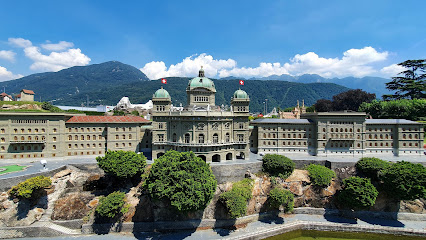
LAC Lugano Arte e Cultura
Experience the vibrant arts and culture scene at LAC Lugano Arte e Cultura, a must-visit cultural center in the heart of Lugano, Switzerland.
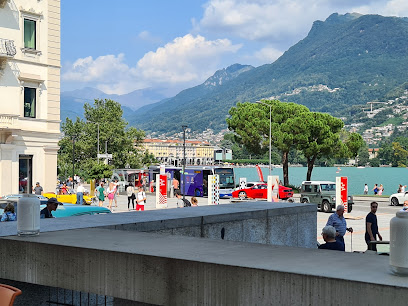
Lake Lugano
Discover the breathtaking beauty of Lake Lugano, where the Swiss Alps meet tranquil waters and charming towns await exploration.

Funicolare Monte San Salvatore
Discover the breathtaking views of Lake Lugano and the Swiss Alps with the iconic Funicolare Monte San Salvatore, a must-visit for every traveler.
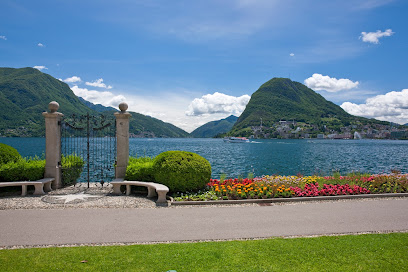
Parco San Grato
Explore Parco San Grato in Lugano, a breathtaking botanical garden offering stunning views, diverse flora, and serene walking paths for nature lovers.
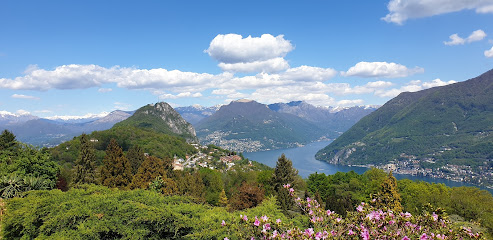
Monte San Salvatore
Discover the stunning vistas and outdoor adventures at Monte San Salvatore, a breathtaking mountain peak in Lugano, Switzerland.
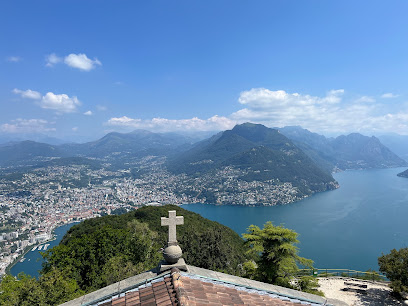
Parco Scherrer
Discover the enchanting beauty of Parco Scherrer, a botanical garden in Morcote offering stunning views of Lake Lugano and a serene escape into nature's embrace.
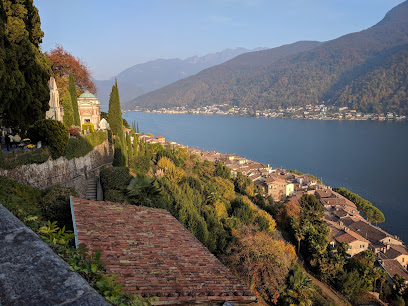
Villa Fogazzaro Roi
Discover the enchanting Villa Fogazzaro Roi, a captivating art museum and historic villa in the heart of Como's picturesque landscapes.
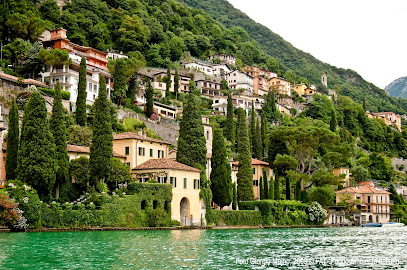
Cathedral of Saint Lawrence
Discover the architectural beauty and spiritual significance of the Cathedral of Saint Lawrence in Lugano, a must-visit landmark in Switzerland.
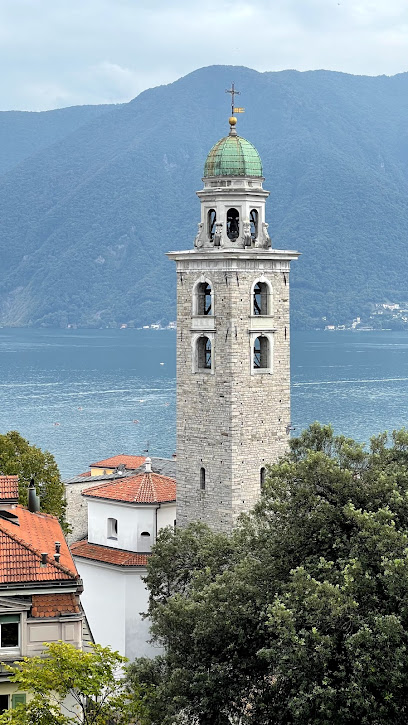
Sentiero dell'olivo
Experience the breathtaking beauty of the Sentiero dell'Olivo, a serene hiking trail in Lugano surrounded by stunning lake views and rich olive culture.
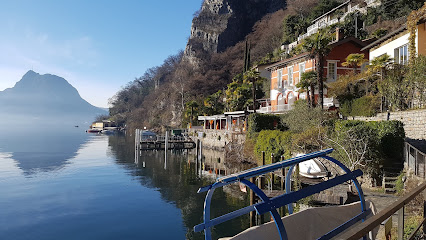
Chiesa di Santa Maria degli Angioli
Discover the artistic splendor and serene atmosphere of Chiesa di Santa Maria degli Angioli, a must-visit Catholic church in the heart of Lugano, Switzerland.
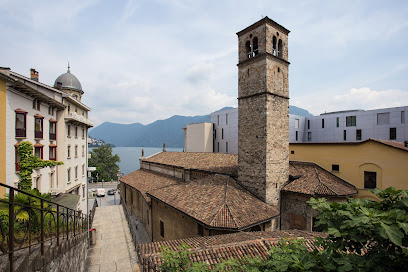
Piazza della Riforma
Explore the vibrant Piazza della Riforma in Lugano, a cultural hub surrounded by stunning architecture, cafes, and beautiful views of Lake Lugano.
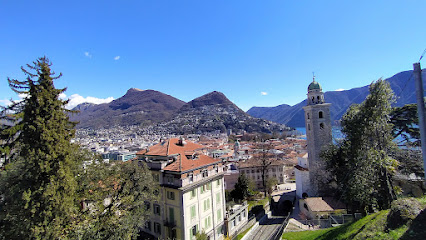
Museo Hermann Hesse Montagnola
Discover the enchanting world of Hermann Hesse at the Museo Hermann Hesse Montagnola, a must-visit cultural destination rich in literary heritage.
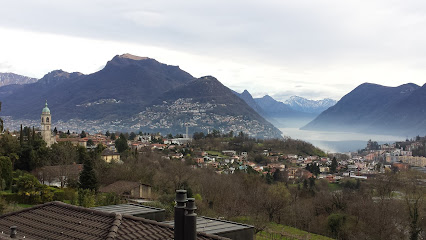
Gate on Lake Lugano
Discover the breathtaking beauty of Lake Lugano at the Gate, a perfect spot for relaxation and stunning views in the heart of Switzerland.
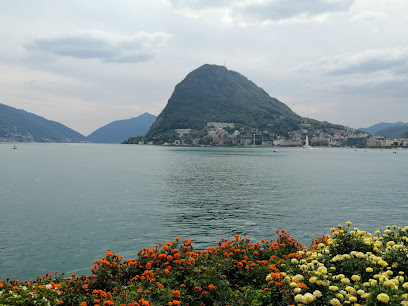
FlyTicino - Paragliding Tandem Flights in Lugano & Locarno | Switzerland
Experience the thrill of tandem paragliding over Lugano and Locarno, witnessing breathtaking views of Swiss landscapes from above.
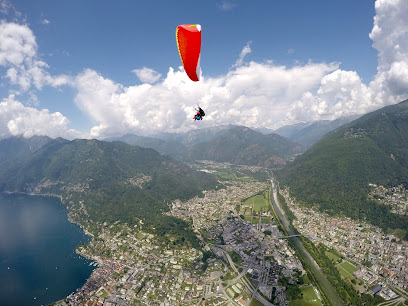
Unmissable attractions to see
Orrido di Bellano
Explore the stunning Orrido di Bellano, a natural gorge with breathtaking waterfalls and unique rock formations in Italy's enchanting Bellano.
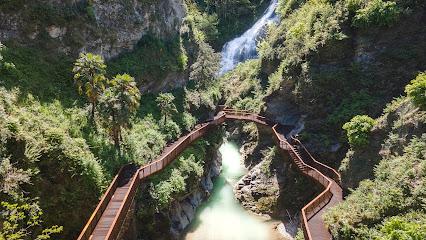
Parco Ciani
Discover the enchanting beauty of Parco Ciani in Lugano, a serene park perfect for relaxation, nature walks, and stunning views of the lake.
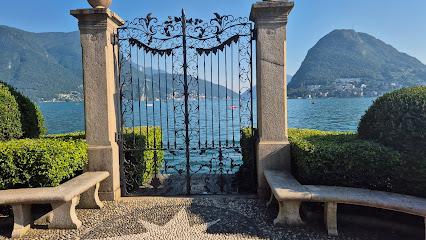
Lake Como
Discover the serene beauty and rich culture of Lake Como, Italy’s picturesque lake surrounded by charming villages and stunning landscapes.
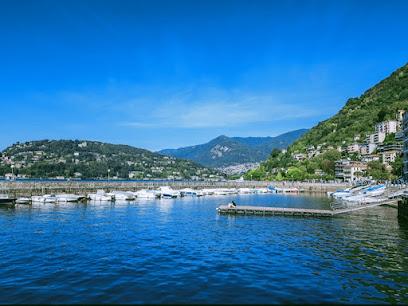
Villa Carlotta
Discover the breathtaking beauty of Villa Carlotta, a perfect fusion of art, history, and botanical wonders on the shores of Lake Como.
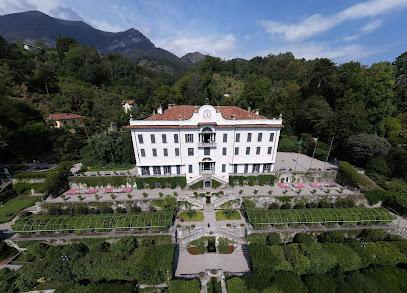
Villa del Balbianello
Discover the enchanting Villa del Balbianello, a historic villa and museum on the shores of Lake Como, surrounded by breathtaking gardens and stunning views.

Giardini Botanici di Villa Taranto
Discover the breathtaking beauty of Giardini Botanici di Villa Taranto, a botanical garden boasting thousands of plant species by the stunning Lake Maggiore.
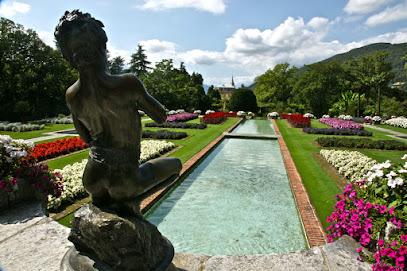
Santa Caterina del Sasso
Experience the breathtaking beauty and tranquility of Santa Caterina del Sasso, a historic nunnery overlooking the stunning Lake Maggiore.
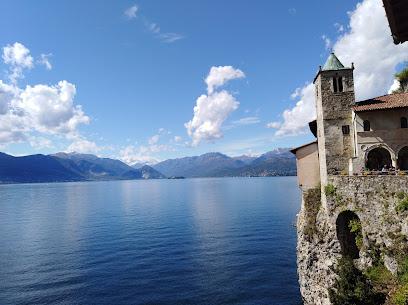
Palazzo Borromeo
Explore the rich history and breathtaking beauty of Palazzo Borromeo on Isola Bella, a baroque masterpiece surrounded by stunning gardens and serene lake views.
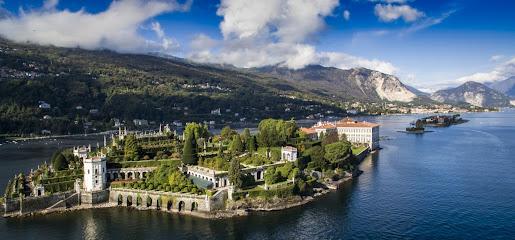
Ponte dei Salti
Discover the Ponte dei Salti, a stunning historical bridge in Verzasca Valley, Switzerland, surrounded by breathtaking natural beauty.
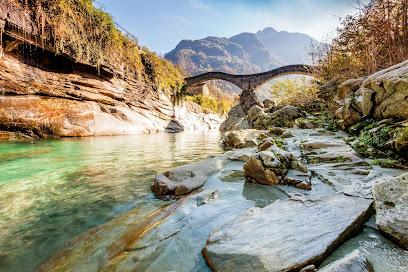
Villa Monastero
Discover the historic beauty and botanical splendor of Villa Monastero, a lakeside gem in Varenna, Italy, perfect for cultural and natural exploration.
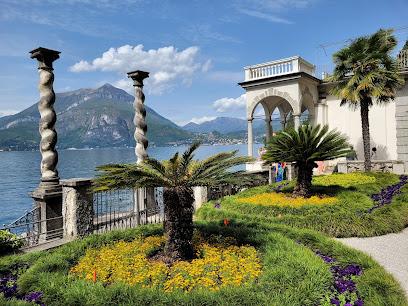
Rocca di Angera
Discover the rich history and stunning views at Rocca di Angera, a captivating castle and museum on the shores of Lake Maggiore.
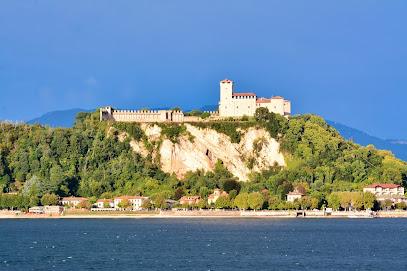
Swissminiatur
Discover the beauty of Switzerland's iconic landmarks in miniature at Swissminiatur, an enchanting open-air museum in Melide.
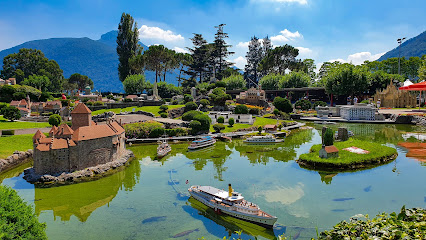
Castello di Vezio
Discover the historical grandeur of Castello di Vezio, a stunning medieval castle with breathtaking views over Lake Como.
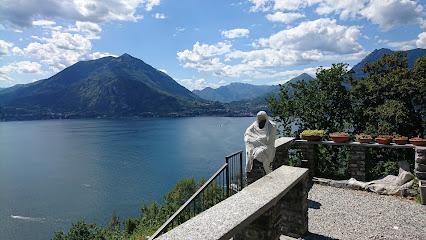
Villa Olmo
Discover the elegance of Villa Olmo, a historic neoclassical villa in Como, surrounded by stunning gardens and breathtaking views of Lake Como.
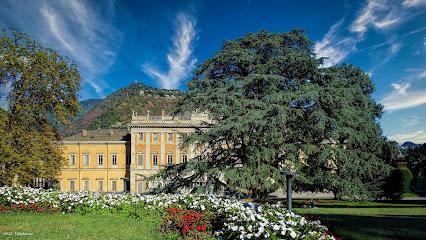
I Giardini di Villa Melzi
Discover the enchanting beauty of I Giardini di Villa Melzi, a historic botanical garden in Bellagio with breathtaking views of Lake Como.
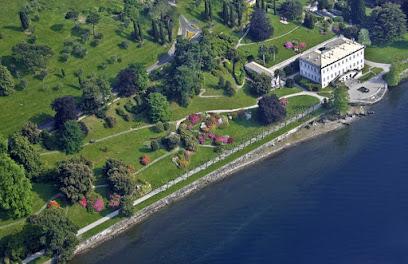
Essential places to dine
Bistrot & Pizza Argentino
Experience authentic Italian flavors at Bistrot & Pizza Argentino in Lugano – where every dish tells a story.
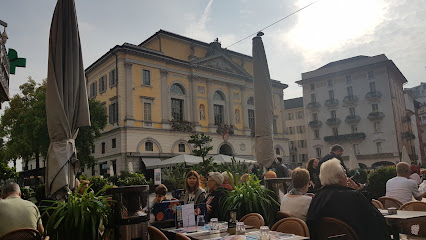
Spaghetti Store SA
Discover authentic Italian cuisine at Spaghetti Store SA in Lugano – where every dish tells a story.
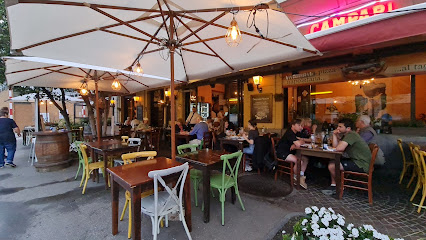
Ristorante Trattoria Galleria
Discover the essence of Italian cuisine at Ristorante Trattoria Galleria in Lugano – where every dish tells a story of tradition and flavor.
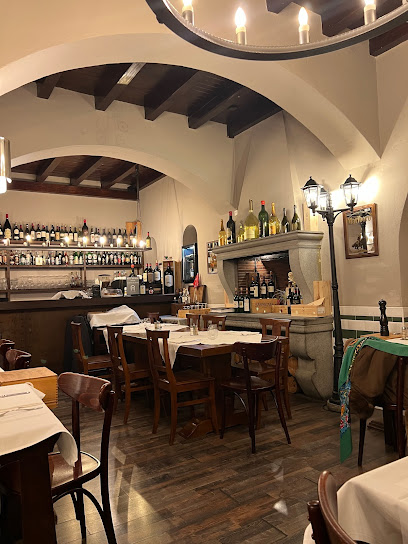
Ristorante Commercianti
Savor authentic Italian cuisine at Ristorante Commercianti in Lugano – where tradition meets taste in every delightful dish.
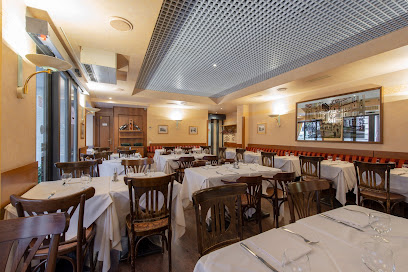
Ristorante Cantinone
Experience authentic Italian cuisine at Ristorante Cantinone in Lugano—where delicious pizza meets vibrant atmosphere.
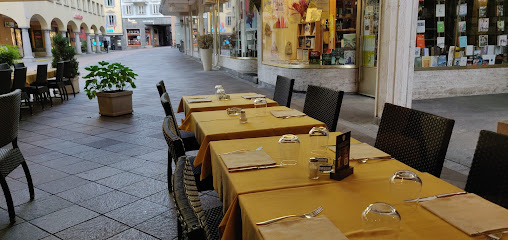
Ristorante Grotto del Pep
Experience authentic Swiss cuisine at Ristorante Grotto del Pep in Lugano – where tradition meets modern culinary excellence.
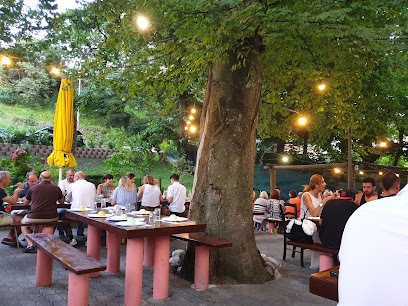
La Fermata
Discover La Fermata in Lugano – where diverse flavors meet vibrant dining in a charming tapas bar setting.
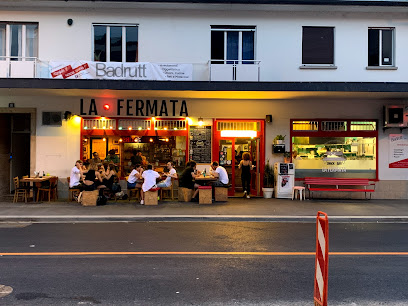
Restaurant La Cucina di Alice
Experience authentic Italian cuisine at Restaurant La Cucina di Alice in Lugano – where every meal is a celebration of flavor and tradition.
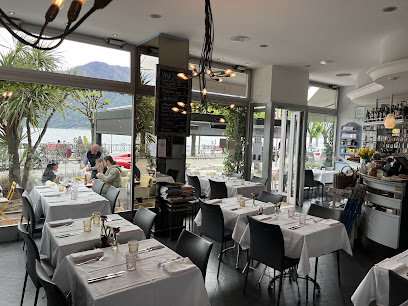
Antica Osteria del Porto
Experience authentic Italian cuisine at Antica Osteria del Porto in Lugano – where every meal is a celebration of flavor and tradition.
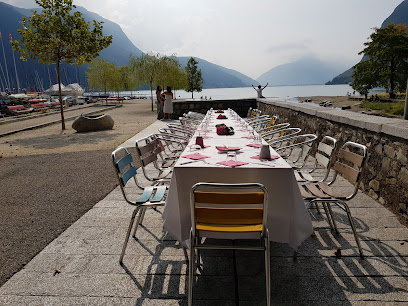
AnaCapri
Discover exquisite cuisine at AnaCapri in Lugano—where Swiss flavors meet Mediterranean charm amidst stunning lake views.
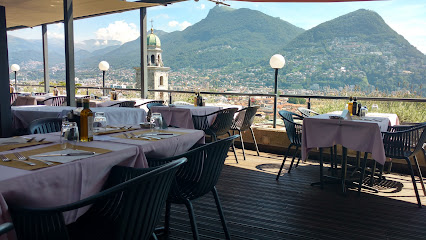
La Tinèra
Experience authentic Swiss cuisine at La Tinèra in Lugano - where tradition meets taste in every dish.
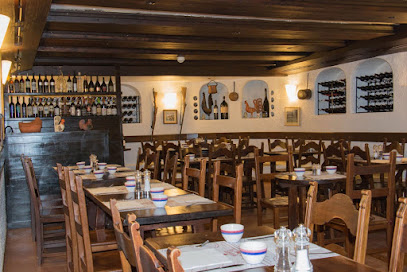
Ristorante SEVEN LUGANO the restaurant
Experience the perfect blend of sushi and Italian cuisine at Ristorante SEVEN LUGANO while enjoying breathtaking views over beautiful Lugano.
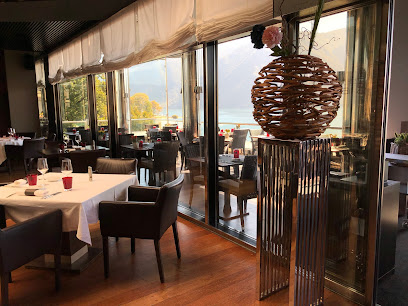
Ciani Lugano
Discover Ciani Lugano: where modern cuisine meets stunning views in the heart of Switzerland's enchanting city.
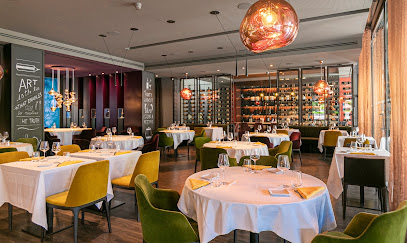
Grand Café Al Porto
Experience the culinary delights at Grand Café Al Porto in Lugano – where Swiss tradition meets modern elegance.
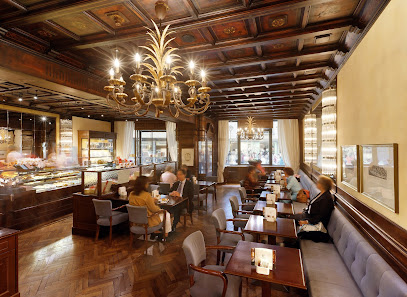
Vitti Lugano Ristorante & Cocktails
Experience exquisite Italian cuisine at Vitti Lugano Ristorante & Cocktails - where tradition meets innovation in every dish.
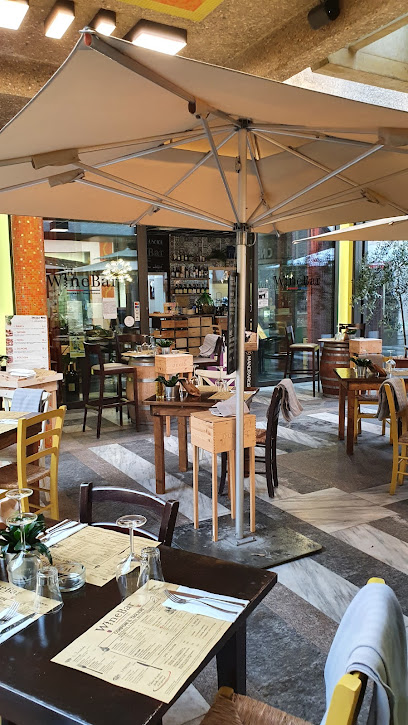
Markets, malls and hidden boutiques
MANOR Lugano
Explore MANOR Lugano, your one-stop destination for clothing, home goods, perfumes, and toys in the heart of Switzerland's beautiful city.
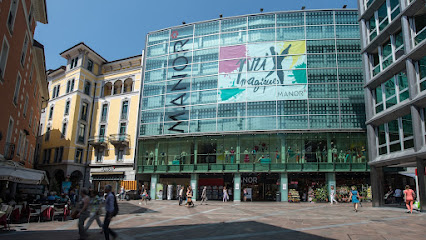
Negozio Souvenir Lugano Lungo-Lago SA
Discover unique jewelry and exquisite souvenirs at Negozio Souvenir Lugano Lungo-Lago, the heart of Lugano's artisanal shopping experience.
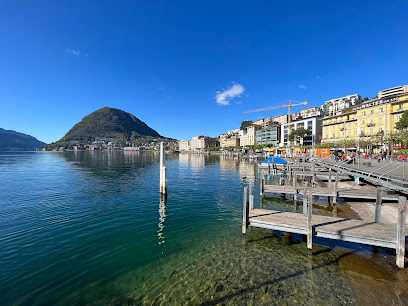
Louis Vuitton Lugano Store
Experience unparalleled luxury shopping at Louis Vuitton Lugano, where exquisite leather goods and fashion accessories await in a stunning setting.
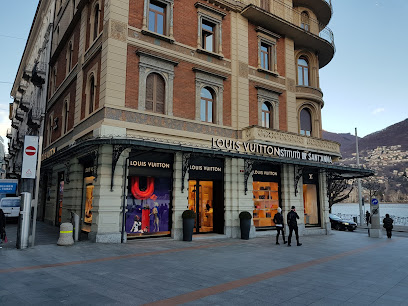
HERMĒS Lugano
Discover the elegance of HERMĒS Lugano, where luxury fashion meets unparalleled craftsmanship in the heart of Switzerland.
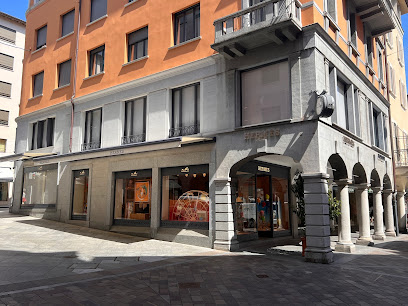
Gucci Lugano
Explore the elegance of Gucci Lugano, your destination for luxury fashion and accessories in the heart of Switzerland.
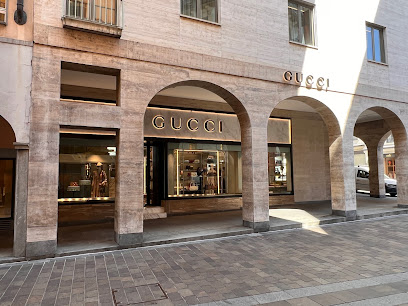
Antonioli Boutique SA
Explore the elegance of luxury fashion at Antonioli Boutique SA in Lugano, where style meets sophistication in every collection.
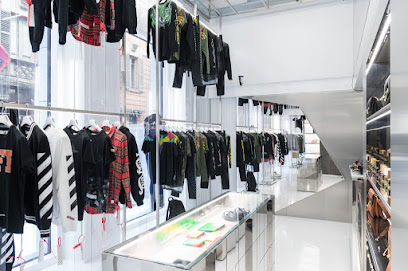
The Store
Discover The Store in Lugano, a unique gift shop offering a delightful array of fragrances, florals, and home goods, perfect for tourists and locals alike.
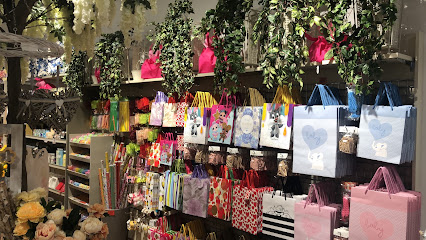
DIOR BEAUTY - LA COLLECTION PRIVÉE
Discover the elegance of DIOR BEAUTY - LA COLLECTION PRIVÉE in Lugano, where luxury perfumes and beauty essentials create an unforgettable experience.
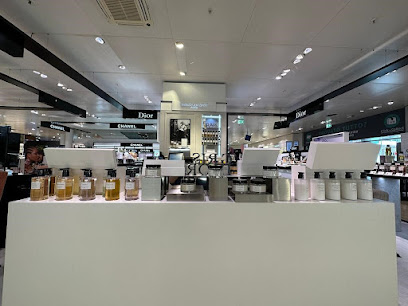
Boutique Tropicana
Explore the exquisite craftsmanship of batik at Boutique Tropicana in Lugano, where vibrant colors and unique designs await every visitor.
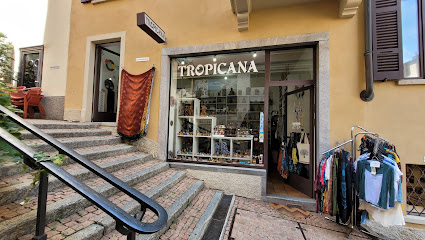
Swarovski Boutique Lugano
Explore the luxurious Swarovski Boutique in Lugano, offering exquisite jewelry, fashion accessories, and watches that define timeless elegance.
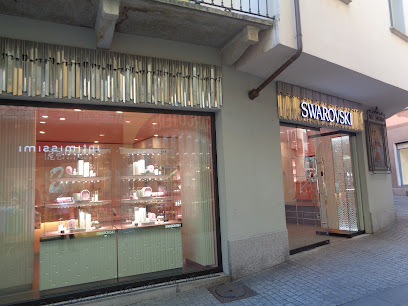
MONTBLANC Lugano Store
Explore the elegance of Montblanc Lugano—a luxury shopping destination for exquisite jewelry, leather goods, and watches in the heart of Lugano.
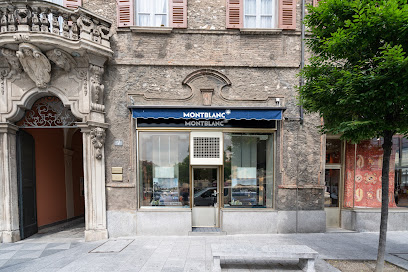
Tourbillon Boutique
Discover luxury watches and exquisite jewelry at Tourbillon Boutique, the premier shopping destination in Lugano, Switzerland.
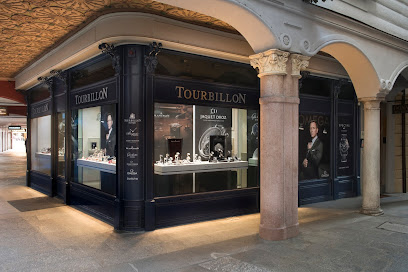
Prada Lugano
Explore the elegance of Prada Lugano, where luxury fashion meets sophisticated shopping in the heart of Switzerland's scenic city.
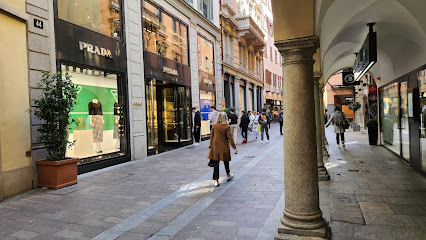
Taste Lugano
Discover stylish hats and exquisite accessories at Taste Lugano, your go-to destination for fashion and fragrance in the heart of Switzerland.
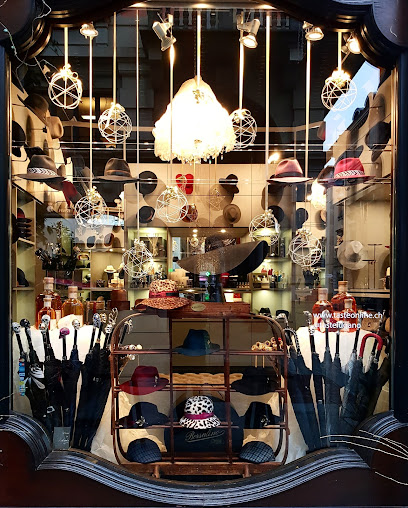
Second Hand Shop Boutique S2
Explore unique pre-loved fashion at Second Hand Shop Boutique S2 in Lugano, where style meets sustainability.
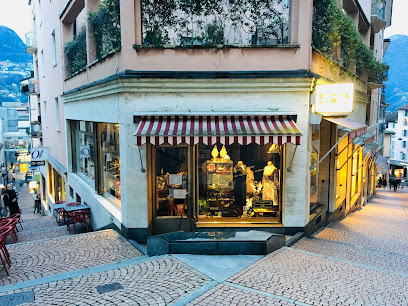
Essential bars & hidden hideouts
Lanchetta Lounge Bar & Pinsa.
Experience the vibrant atmosphere and authentic Italian pinsa at Lanchetta Lounge Bar & Pinsa, a must-visit destination in Lugano.
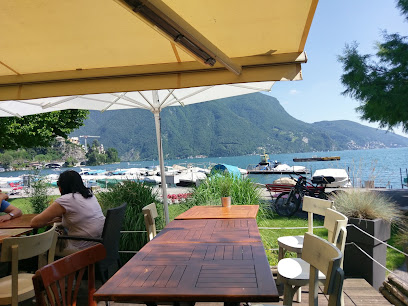
Il Fermento
Discover the authentic Swiss pub experience at Il Fermento in Lugano, where great drinks and a lively atmosphere await every visitor.
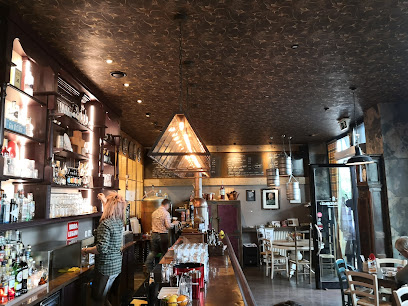
Trinity Irish Pub
Discover the authentic taste of Ireland at Trinity Irish Pub in Lugano, where great food, drinks, and local culture meet.
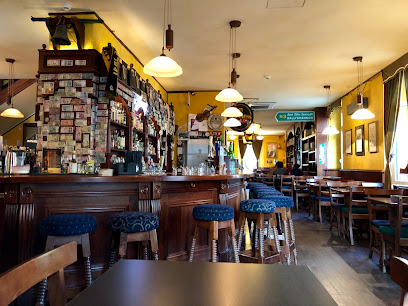
Bar Laura
Discover Bar Laura in Lugano, your go-to spot for exceptional coffee, cocktails, and small plates in a lively atmosphere.
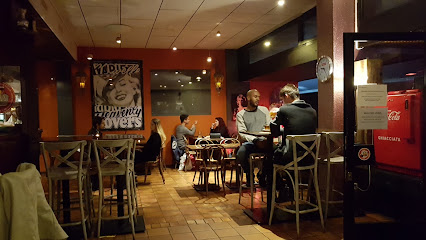
Bar Oops
Discover Bar Oops in Lugano - a lively bar offering delicious drinks, friendly atmosphere, and vibrant nightlife in the heart of the city.
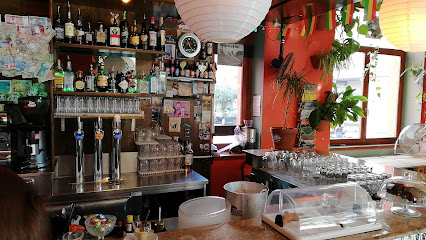
Caffè Caruso
Discover the lively atmosphere of Caffè Caruso in Lugano, where delicious coffee and local delicacies await in a picturesque setting.
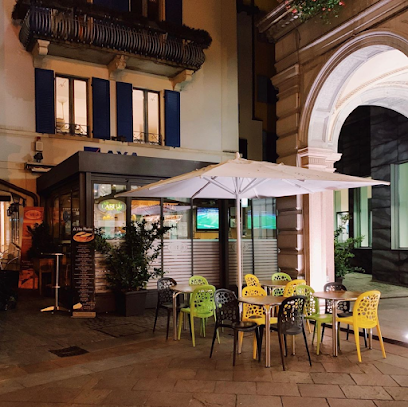
Vermouth by Martini
Indulge in exquisite cocktails and delicious small plates at Vermouth by Martini, a stylish bar in the heart of Lugano, Switzerland.
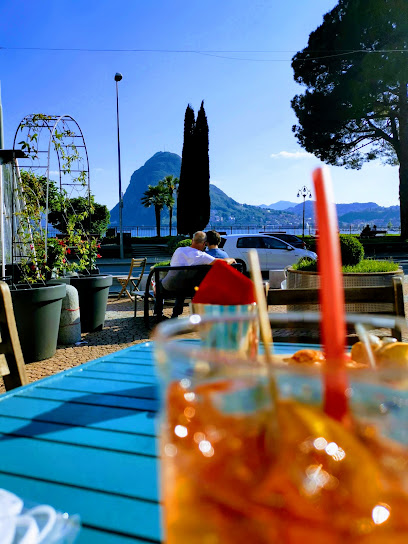
Seven Lounge Lugano
Discover sophistication at Seven Lounge Lugano, where expertly crafted cocktails meet a chic ambiance in the heart of Switzerland.
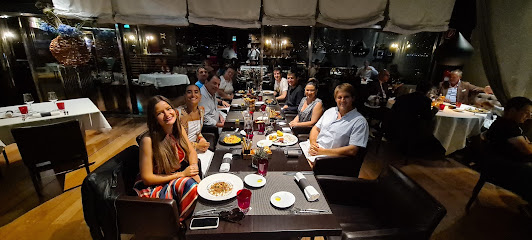
Bar Kulma
Experience the vibrant nightlife at Bar Kulma in Lugano, a trendy bar offering a wide selection of drinks and a lively atmosphere.
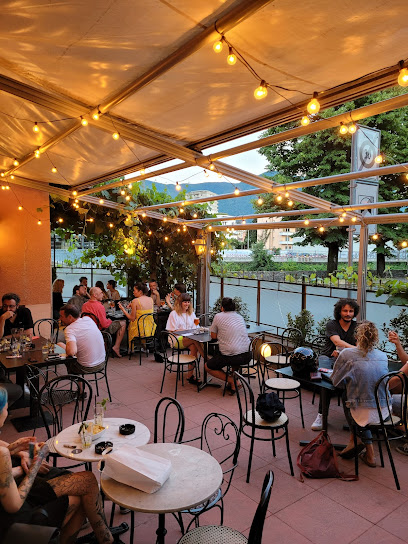
Pub Number One
Discover the lively spirit of Lugano at Pub Number One, where great drinks and an inviting atmosphere await every visitor.
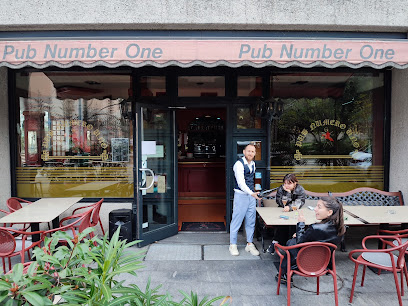
Havana Deck
Experience the vibrant nightlife and culinary delights at Havana Deck, a top bar and restaurant in Paradiso, perfect for every tourist.
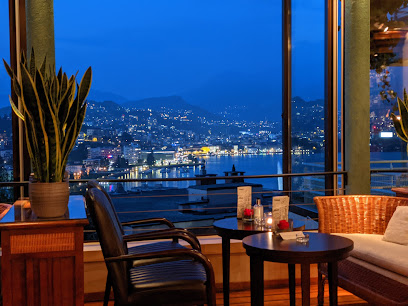
The Market Lugano
Discover The Market Lugano: A top-notch bar and restaurant offering exquisite cocktails and a diverse menu in a vibrant atmosphere.
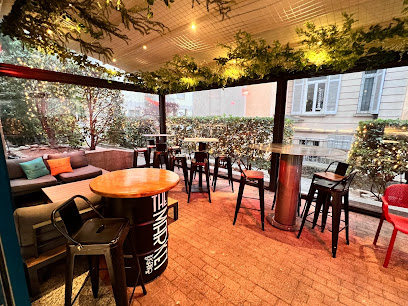
Bar Lando
Experience the perfect blend of relaxation and entertainment at Bar Lando, Lugano's charming bar and hookah lounge.
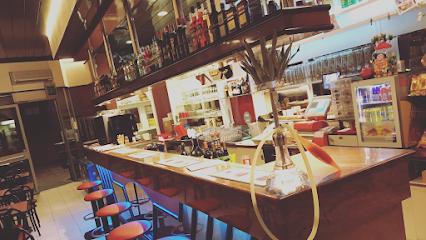
Pub Piccolo Principe
Discover the essence of Lugano’s nightlife at Pub Piccolo Principe, where locals and tourists alike gather for a cozy drink and vibrant atmosphere.
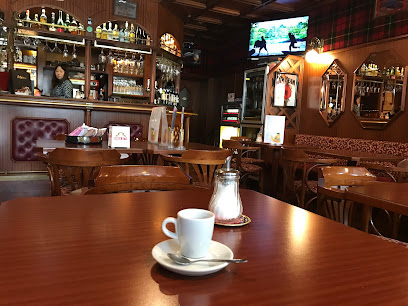
Local Phrases
-
- HelloCiao
[chow] - GoodbyeArrivederci
[ar-ree-veh-der-chee] - YesSì
[see] - NoNo
[no] - Please/You're welcomePer favore
[pair fa-vor-eh] - Thank youGrazie
[grat-zee-eh] - Excuse me/SorryScusi
[skoo-zee] - How are you?Come stai?
[ko-meh sty] - Fine. And you?Bene. E tu?
[beh-neh. eh too] - Do you speak English?Parli inglese?
[par-lee een-gleh-zeh] - I don't understandNon capisco
[non kah-pee-skoh]
- HelloCiao
-
- I'd like to see the menu, pleaseVorrei vedere il menu, per favore
[vor-ray veh-deh-reh eel meh-noo, pair fa-vor-eh] - I don't eat meatNon mangio carne
[non man-joh kar-neh] - Cheers!Salute!
[sa-loo-teh] - I would like to pay, pleaseVorrei pagare, per favore
[vor-ray pah-gah-reh, pair fa-vor-eh]
- I'd like to see the menu, pleaseVorrei vedere il menu, per favore
-
- Help!Aiuto!
[ai-oo-toh] - Go away!Vattene!
[vah-tay-neh] - Call the Police!Chiama la Polizia!
[kee-ah-mah lah poh-lee-tsee-ah] - Call a doctor!Chiama un medico!
[kee-ah-mah oon meh-dee-koh] - I'm lostMi sono perso
[mee soh-no pair-soh] - I'm illSto male
[stoh mah-leh]
- Help!Aiuto!
-
- I'd like to buy...Vorrei comprare...
[vor-ray com-prah-reh] - I'm just lookingSto solo guardando
[stoh soh-loh gwar-dan-doh] - How much is it?Quanto costa?
[kwan-toh koh-stah] - That's too expensiveÈ troppo caro
[eh troh-po kah-roh] - Can you lower the price?Puoi abbassare il prezzo?
[pwoy ab-bah-sah-reh eel preh-tsoh]
- I'd like to buy...Vorrei comprare...
-
- What time is it?Che ora è?
[keh o-rah eh] - It's one o'clockÈ l'una
[eh loo-nah] - Half past (10)Le dieci e mezza
[leh dee-eh-chee eh meh-tsa] - MorningMattina
[maht-tee-nah] - AfternoonPomeriggio
[poh-meh-ree-joh] - EveningSera
[seh-rah] - YesterdayIeri
[ee-eh-ree] - TodayOggi
[oh-jee] - TomorrowDomani
[doh-mah-nee] - 1Uno
[oo-no] - 2Due
[doo-eh] - 3Tre
[treh] - 4Quattro
[kwah-troh] - 5Cinque
[cheen-kweh] - 6Sei
[say] - 7Sette
[set-teh] - 8Otto
[ot-toh] - 9Nove
[noh-veh] - 10Dieci
[dee-eh-chee]
- What time is it?Che ora è?
-
- Where's a/the...?Dov'è...?
[doh-veh] - What's the address?Qual è l'indirizzo?
[kwal eh leen-dee-rits-so] - Can you show me (on the map)?Puoi mostrarmi (nella mappa)?
[pwoy mos-trar-mee] - When's the next (bus)?Quando passa il prossimo (autobus)?
[kwan-doh pahs-sah eel prohss-see-moh] - A ticket (to ....)Un biglietto (per ....)
[oon beel-yet-toh]
- Where's a/the...?Dov'è...?
History of Lugano
-
Lugano's history dates back to prehistoric times, with evidence of settlements from the Neolithic period. During the Roman era, the region was a strategic location due to its position along important trade routes. The influence of Roman culture left a lasting impact on the area, with remnants of Roman architecture and artifacts still being discovered today.
-
In the Middle Ages, Lugano became part of the Lombard League, a coalition of city-states in Northern Italy. The city was frequently contested due to its strategic position. The Cathedral of San Lorenzo, originally built in the 9th century, stands as a testament to Lugano's medieval past. The city's fortifications and strategic importance led to numerous conflicts between local lords and external powers.
-
Lugano was incorporated into the Swiss Confederation in 1513 after the Swiss victory at the Battle of Novara. This marked a significant shift in the city's governance and cultural development. Lugano's inclusion in the Confederation brought stability and economic growth, helping it to flourish as a center of commerce and culture.
-
The Renaissance period saw Lugano emerge as a cultural hub. The city became known for its artists and architects, including the renowned Baroque architect Domenico Fontana. The influence of the Renaissance is evident in the city's artistic heritage, with numerous churches, frescoes, and buildings from this period still adorning Lugano.
-
In the 19th and 20th centuries, Lugano transformed into a modern city. The construction of the Gotthard Railway in 1882 was a pivotal moment, linking Lugano to major European cities and boosting its economic development. The city became a popular destination for tourists and expatriates, attracted by its stunning landscapes and mild climate.
-
Lugano's location in the Italian-speaking part of Switzerland has made it a cultural melting pot. The city blends Swiss efficiency with Italian flair, creating a unique cultural tapestry. Annual events like the Lugano Festival and the Estival Jazz highlight the city's vibrant cultural scene, attracting visitors from around the world.
-
Lugano boasts a rich architectural heritage. Notable landmarks include the Palazzo dei Congressi, a modernist building that hosts many international conferences, and the Art Museum of Italian Switzerland, which showcases an impressive collection of Italian and Swiss art. The fusion of historical and contemporary architecture in Lugano offers a visual journey through time.
-
Surrounded by the Lugano Prealps and Lake Lugano, the city offers breathtaking natural beauty. Monte Brè and Monte San Salvatore provide panoramic views of the region and are popular hiking destinations. The Parco Ciani, located along the lake, is a serene park perfect for leisurely walks and picnics, reflecting the harmonious blend of nature and urban life in Lugano.
Lugano Essentials
-
Lugano is well-connected by air, rail, and road. The nearest international airport is Milan Malpensa Airport in Italy, approximately 70 kilometers away. From the airport, you can reach Lugano by train, bus, or car. The Swiss Federal Railways (SBB) offers regular and efficient train services to Lugano from major Swiss cities such as Zurich, Geneva, and Basel. If you prefer driving, Lugano is accessible via the A2 motorway, which connects the city to the rest of Switzerland and Italy.
-
Lugano boasts a comprehensive public transportation system, including buses, funiculars, and boats. The city's buses are operated by Trasporti Pubblici Luganesi (TPL) and connect the main districts and surrounding areas. The Lugano-Ponte Tresa Railway (FLP) offers a scenic route between Lugano and Ponte Tresa. Taxis are readily available but can be expensive. For a unique experience, consider taking a boat ride on Lake Lugano. Renting a bicycle or walking are also excellent ways to explore the city, especially the pedestrian-friendly old town.
-
The official currency in Switzerland is the Swiss Franc (CHF). Credit cards are widely accepted in hotels, restaurants, and shops. ATMs are conveniently located throughout Lugano, allowing you to withdraw cash as needed. It's advisable to carry some cash for smaller purchases and in case you visit places that do not accept cards. Most establishments also accept Euros, but the exchange rate might not be favorable.
-
Lugano is generally a safe city with low crime rates. However, it's always best to remain vigilant and take standard precautions. Avoid leaving your belongings unattended and be cautious in crowded areas to prevent pickpocketing. There are no specific neighborhoods with high crime rates targeting tourists, but staying alert, especially at night, is recommended.
-
In case of emergency, dial 144 for medical emergencies, 118 for fire emergencies, and 117 for police assistance. Lugano has several hospitals and clinics, including the Ospedale Regionale di Lugano, which provides comprehensive medical services. Pharmacies are available throughout the city for minor health issues. It is recommended to have travel insurance that covers medical emergencies during your stay.
-
Fashion: Do dress smartly and elegantly, as locals appreciate good attire. Avoid overly casual clothing when dining out or visiting upscale establishments. Religion: Do respect religious sites by dressing modestly and maintaining a quiet demeanor. Public Transport: Do validate your ticket before boarding and give up your seat to elderly passengers. Don't eat or drink on public transport. Greetings: Do greet people with a friendly 'Buongiorno' or 'Buonasera.' A firm handshake is customary. Eating & Drinking: Do try local dishes and wines. Don't rush your meals; Italians enjoy leisurely dining experiences. Tipping is appreciated but not mandatory.
-
To experience Lugano like a local, visit the local markets such as Mercato di Lugano, where you can buy fresh produce and regional delicacies. Take a leisurely stroll along the lakeside promenade or hike up Monte Brè for stunning views of the city and lake. Participate in local festivals and events, such as the Lugano Festival or Estival Jazz, to immerse yourself in the local culture. Don't miss a visit to Parco Ciani, a beautiful lakeside park perfect for a relaxing afternoon.
Trending Landmark in Lugano
-
Swissminiatur
-
LAC Lugano Arte e Cultura
-
Lake Lugano
-
Funicolare Monte San Salvatore
-
Parco San Grato
-
Monte San Salvatore
-
Parco Scherrer
-
Villa Fogazzaro Roi
-
Cathedral of Saint Lawrence
-
Sentiero dell'olivo
-
Chiesa di Santa Maria degli Angioli
-
Piazza della Riforma
-
Museo Hermann Hesse Montagnola
-
Gate on Lake Lugano
-
FlyTicino - Paragliding Tandem Flights in Lugano & Locarno | Switzerland
Nearby Cities to Lugano
-
Things To Do in Locarno
-
Things To Do in Ascona
-
Things To Do in Milan
-
Things To Do in Bergamo
-
Things To Do in St. Moritz
-
Things To Do in Zermatt
-
Things To Do in Grindelwald
-
Things To Do in Murren
-
Things To Do in Arosa
-
Things To Do in Davos
-
Things To Do in Interlaken
-
Things To Do in Balzers
-
Things To Do in Lucerne
-
Things To Do in Thun
-
Things To Do in Triesenberg













